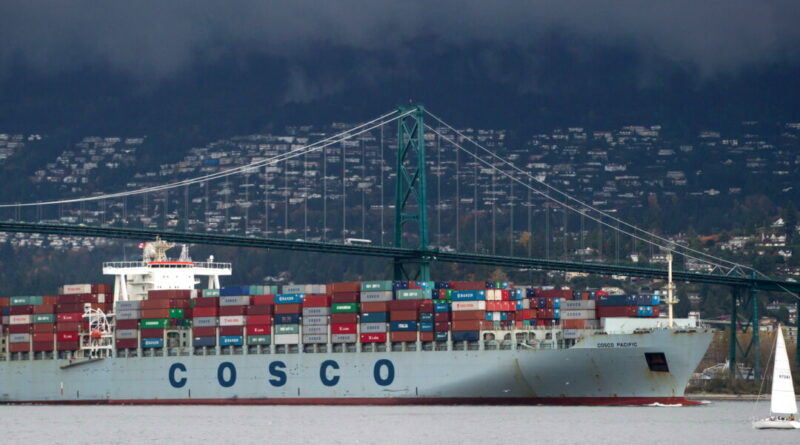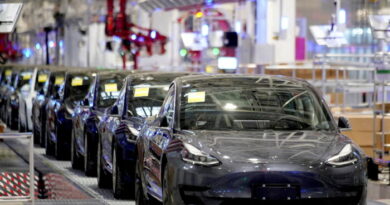Canada Has the Potential to Triumph in Trade Disputes with China
Commentary
an anti-dumping investigation into Canadian canola imports.
The trouble with China’s latest claim that a Western country is engaged in unfair trade practices is the many times it has used this type of accusation as a geopolitical cudgel.
Perhaps the most famous case was in the midst of the COVID-19 pandemic, when Australia led an international call for an independent inquiry into the origins of the virus which had brought the world to a standstill.
targeting a dizzying array of Australian products including barley, beef, lamb, wine, cotton, lobsters, timber, and coal. The move was intended to send Australia, and the Western world more broadly, a message that there would be repercussions for standing up to the Chinese Communist Party (CCP).
Though fiery and dramatic, that message fell flat: the sanctions were remarkably ineffective in the long run. This is because of a simple concept known as trade diversion: when trade barriers go up, businesses will naturally seek new markets for their products.
explains how trade diversion took place in Australia from 2020–2021. Following the Chinese trade sanctions, Australian barley was diverted to places like Thailand and Saudi Arabia, Australian cotton was redirected to Bangladesh and Vietnam, and Australian coal exporters found happy buyers in India and South Korea. Australia also found new markets for its wine in Europe, the UK, and the United States, according to
data released by Wine Australia in 2021.
famous statement in a tweet by former U.S. President Donald Trump in 2018: “Trade wars are good, and easy to win!” As is often the case with Trump’s salesman-like quotes, it was a humorous exaggeration that contained more than one grain of truth. Trade wars are not always bad. While many Canadian commentators fall prey to the fatalistic line of thought that calls for complete surrender as soon as the first tariff is slapped, the reality is that when one trade door closes, another usually opens.
U.S.-China trade war which raged from 2018–2019. The Trump administration hit US$350 billion worth of Chinese imports with tariffs, while China punched back by levying tariffs on $100 billion worth of American imports. These tariffs were anything but symbolic, overshadowing in scope even the famously protectionist 1930 Smoot-Hawley Tariff Act.
Talking heads in the mainstream media fretted that the tit-for-tat tariffs would devastate the U.S. economy. Predictions of economic doom did not come true.
saw big gains in exports during this period.
couldn’t be distributed to provinces because they failed to meet proper standards.
friendshoring strategy.
Canada should get serious about both onshoring and friendshoring. Overreliance on a volatile geopolitical adversary for imports and exports doesn’t only mean you might get faulty products during an emergency—it also means you are muzzled when it comes to unfair trade practices.
If you feel that you have no conceivable alternative to your present employer, you won’t complain if they make you work extra hours without overtime pay. The same is true in the world of trade.
flood of Chinese honey cut with corn syrup, sugar cane, and rice syrup. Not only does this provide an inferior product to Canadian consumers, but it also undercuts Canadian beekeepers, who have to compete with an impure, cheaper import.
Too many in Canada are stuck in a frame of mind where trade with China is considered an essential element of our economy for which there are no alternatives. If you brought this line of thought to a business negotiation, you would get a raw deal every time. To get a good deal, you have to theoretically be willing to walk away from the table.
When it comes to trade sanctions, China’s bark is worse than its bite. If more governments recognized this, the CCP wouldn’t be so quick to use tariffs and bogus investigations as geopolitical tools to enforce economic and political subservience from Western countries.
If China’s investigation into Canadian canola proves to be the first shot across the bow in another trade war, Ottawa should stand firm and refuse to relent to demands to remove tariffs on Chinese-produced EVs, steel, and aluminum. Instead of kowtowing, we should call their bluff.
Views expressed in this article are opinions of the author and do not necessarily reflect the views of The Epoch Times.





